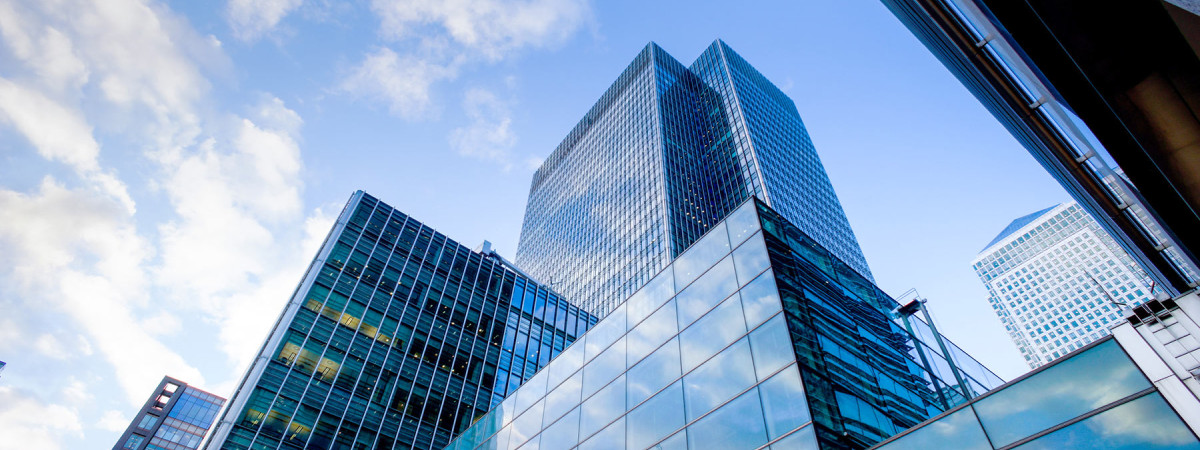
Photo by alice-photo on iStock
Key Points
- SMEs (small and medium-sized enterprises) make up 90 percent of businesses worldwide, employ over 2 billion people, and have a critical role to play in reaching global climate goals.
- SMEs often lack the tools and financial resources needed to reduce their GHG footprint, and few have long-term emissions reduction or resilience plans in place.
- Corporates and banks have a large role to play in supporting SME clients and suppliers take decisive climate action.
Delivering a just and inclusive net-zero economy is one of the major challenges of our times. According to the latest IPCC report, the 1.5°C goal is slipping out of reach, and we know that climate action must accelerate drastically across all sectors and economies.
To date, government action is not sufficient, and as COP27 has shown, business has a major role to play in achieving a net-zero economy. Several major companies have already set targets following a 1.5°C trajectory, which are approved by the Science-Based Target initiative. Achieving these targets requires action, not only within company operations but across value chains globally.
Addressing Barriers to SME Net-Zero Action
SMEs are a key part of global value chains: they account for 99 percent of businesses worldwide and are responsible for a large part of industrial emissions in the OECD area. A typical supply chain depends on thousands of suppliers—both large and small companies are dependent on their suppliers to achieve their Scope 3 goals. SMEs also make up a large portion of client portfolios for financial institutions, particularly commercial banks.
However, SMEs often lack the tools and resources needed to reduce their GHG footprint, and few have long-term emissions reduction or resilience plans in place. A recent survey identifies typical barriers as lack of knowledge, limited time, lack of funds, and conflicting priorities. For example, SMEs are disadvantaged in accessing finance compared to large companies, in part due to high transaction costs. Faced with these barriers, SMEs are at risk of remaining left out of ambitious climate action plans, which impedes progress on achieving a just transition.
Collaborative Innovation Sprint Process
At BSR, we see an untapped opportunity for corporates to leverage their learnings, provide resources and connections to, and reward ambitious action from their SME suppliers. We also see an equally untapped opportunity for banks to raise awareness among SME clients and to reward them, while also innovating financial products toward SME net-zero action.
Support for SMEs is starting to emerge. BSR has partnered with the SME Climate Hub, a free one-stop shop of resources to support climate action. A key feature includes Climate Fit, a training course developed by BSR and CISL for SMEs to get started in taking climate action and building business resilience. BSR members can learn more about the course at this upcoming webinar.
In 2022, BSR and CISL also co-authored a report exploring the role of corporate and banks in supporting SME transition. Developed through an innovative process with a group of banks, companies, experts, and SMEs, it presents four key levers and suggests four possible solutions.
The four levers are as follows:
- Knowledge: collaborating with SME suppliers and customers by facilitating access to resources and learning
- Technology: leveraging technology solutions to ease the SME journey toward action
- Behavior: making decarbonization intuitive and attractive, thus nudging SME suppliers and customers to act
- Business model shift: rethink business process with climate action in mind
Proposed Solutions
Our research suggests that four key solutions would dramatically accelerate SME action if pushed by corporate buyers and banks.
- A climate readiness classification process: A scalable self-assessment and maturity model would tailor the solution and support the diversity of SME needs. This is fundamental given the varying size, sector, and geography of each SME.
- A shared repository of data: An independently led repository of Scope 1, 2 and 3 emissions jointly accessible to banks, corporates, and SMEs is a long-shot solution, but it would avoid duplication of reporting efforts and allow SMEs to focus on climate action.
- Behaviorally informed roadmap: Providing visibility of peer approaches and solutions is an initial way to encourage action.
- A marketplace to provide service offers, which is thematically clustered: Providing visibility on available services and offerings, in one place, supports faster action.
We see a lot of potential for collaboration on delivering such solutions, including leveraging existing infrastructure such as the SME Climate Hub.
SME action is key to delivering on an inclusive net-zero transition and achieving company Scope 3 goals. We encourage our members to use these findings to support your SME suppliers or customers on their journey to net zero. Learn more about our insights by joining our event on February 21, and contact us if you’re interested in more information on taking collaborative action.
BSR’s latest sustainability insights and events straight to your inbox.
Topics
Let’s talk about how BSR can help you to transform your business and achieve your sustainability goals.









